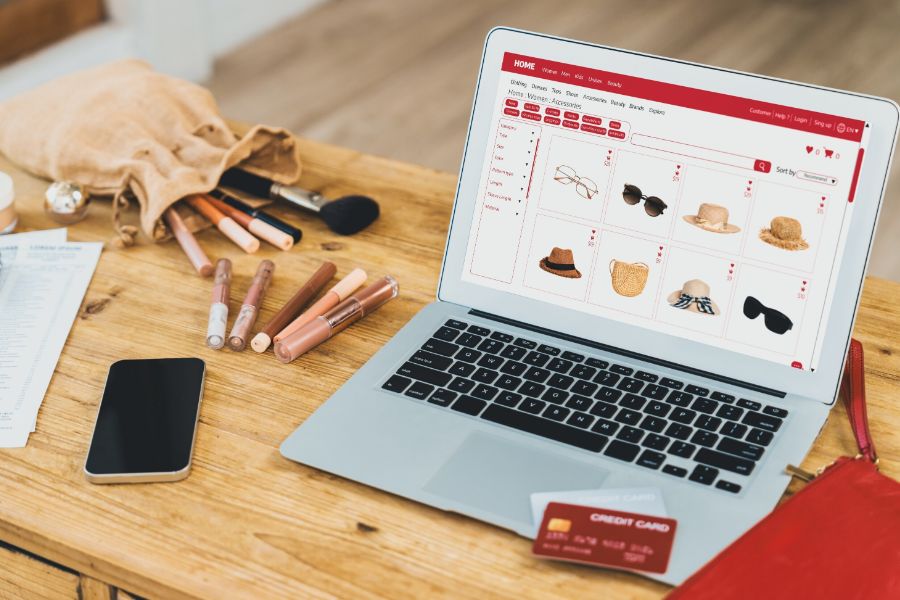When discussing a commerce business, it’s common for retailers to discuss the products, the profits, the costs, the stores, etc. They will likely forget about one of the most critical elements of their retail business: storing their products, regulating the profits, minimizing the costs, and supplies for the stores. That’s inventory management. In today’s article, we’ll learn everything you need about inventory management and how to nail inventory management for successful retailers.
What is inventory management?
The term is used for managing everything like goods, product quality, stock level, etc. It is also the management of a company’s production, selling, buying, and storing inventories. Whether you’re running a small business or a large one, inventory management is critical and decisive to the success of your business. Different companies deal with different items, which can be raw materials, finished products, or both. Inventory management helps business owners and operators monitor the stock level and track the stock flow.
Why is inventory management important?
Inventory management ensuring successful retailers is the one that helps you in more than one way:
- It will regulate your cash flow. If you manage your cash properly and don’t waste on buying the items that can’t sell or sell at such a low rate that it’s inconsiderable, you can invest in other products that are your best-sellers.
- If you don’t manage your inventory properly, then you are putting your whole retail business at risk of not providing the demanded stock to customers in a given time. And this is definitely not so favorable for your company as it can negatively affect the image of your business in customers’ hearts.
- Inventory management helps you not only store and store your products but also ship the orders to customers. With an advanced inventory management system, you can figure out the best route to pack and send the items to the customer.
Questions to ask when managing an inventory
As we have already discussed inventory management helps businessmen to track and record the inventory. In order to ensure a proper inventory management for your business’s success, there are a few questions you should ask yourself as a business owner and operator:
- Where are you going to store your items? Will you store them in a warehouse, or is your physical store space enough for your business? And if you are selling on digital platforms or on the phone, where will you store your products?
- How much stock will you stock? Is your stock enough to fulfill your needs? How much extra or dead stock is present in your warehouse?
- Are you storing your products in the right place? Is your ventilation system well-functioning? What is the condition of moisture there?
All of the above factors are to ensure inventory management for successful retailers. They are important because they directly affect the quality of your products which result in whether your customer experiences are good or bad.
Types of inventory management
Perpetual inventory
This is a type of 24/7 inventory management that manages all the issues of the stock no matter what time it is or what day it is. Though it’s not that impossible to do it manually, this management is dependent on software to help minimize human errors and labor costs.
In such a system, all the management is controlled by a cloud-based point-of-sale (POS) system. It becomes extremely handy for business managers to keep track of how much stock is sold and how much is remaining. Perpetual inventory management system is a beneficial tool for the businessmen to run their businesses smoothly without any worries.
Just-in-time (JIT) inventory
JIT inventory is a strategy in which products are received only as they are needed in the production process, thereby reducing inventory costs, increasing efficiency and decreasing waste. In other words, JIT inventory refers to an inventory management system with the mechanism of having your stock ready and available to meet demand, but not to a point of excess where you must stockpile extra products. The manager only informs the businessmen to order the product when it is about to finish from the store.
It is great and out-standing inventory management for successful retailers, yet only useful when done properly. This system needs to control the production of goods and make reorders correctly so that not only does it can save the wastage of products but also fulfill the demand timely.
ABC Inventory
ABC analysis is an inventory categorization method used to concentrate efforts and resources on the items that matter the most to the company. This system manages the inventory by categorizing the products into different groups, which are most demanded, less demanded, and rarely demanded.
This inventory management method is based on the Pareto principle or the 80/20 rule. The rule suggests that 80% of the sales volume is from 20% of the items, no matter which measurement unit is chosen. As a result, this method is an easy and handy way for sellers to know which one is their best-seller and spend more time and investment on it.
Consignment inventory
Consignment inventory is the stock in hands of a third-party retailer (so-called the consignee), while the wholesaler (so-called the consignor) retains ownership until the products are sold. The consignee buys the products from the consignor and pays money only when the products are sold. The consignee can even decide to return any dead stock without worrying about monetary repercussions. This method is suitable for resellers who have not much money to stock a large amount of product in a period of time. Consignment inventory deems to be one of the most effective inventory management methods for successful retailers.
Different techniques for inventory management
ABC analysis
The products are divided into different categories depending on their costs and profits. For establishing a successful business it is important to understand it first.
Category “A” are the most profitable and low-cost products. These products have the highest turnover rate and can be stored for a long time as they can be sold completely later on. So products of this category are the most beneficial for the business.
Category “B” is also profitable for business but is slightly expensive. The demand for these products is more but less than the category “A” products.
Category “C” are the least profit-giving products that are less demanding. These products sell at a very low rate or even don’t sell at all, making it hard for businesses to profit from this kind of product.
Maintain the reordering of products
To build inventory management for successful retailers, it’s important to manage the ordering of products. There are 2 terms used in business that are MOQ and EOQ. Understanding these terms is critical for proper inventory management.
MOQ stands for minimum order quantity, or in other words, it is the minimum number of stock of the product that the seller is selling.
Meanwhile, EOQ means economic order quantity which is a company’s optimal order quantity that minimizes its total costs related to ordering, receiving, and holding inventory. EOQ will be higher for the most selling products and lower for less demanding and expensive items.
Demand forecasting
It is another key point to manage your inventory cleverly. You must know which product is high in demand or low in demand during which period of time. Demand forecasting helps make reorders timely to avoid running out-of-stock. It will prevent the gap in the selling of that specific product.
Manage your inventory cleverly with ConnectPOS
If you own a business and want a technologically advanced inventory management system, ConnectPOS is your best option.
ConnectPOS is one of the best cloud-based POS software to ensure a successful business. Such a POS system won’t let you down as it’s capable of offering you smart inventory management for successful retailers. Our POS works well on multiple platforms from desktops to mobile devices like smartphones, laptops, tablets, etc. ConnectPOS software works fast and stable. It synchronizes your data across warehouses and stores in real-time, making tracking your stock easy. Even better, our pricing plans are straightforward with no hidden fee. And the best thing is that we will support you 24/7. See our potential but still hesitate to give it a try? Don’t worry, there are more than 2000 retailers who have tried before you, and they are all happy with our globally standard service. So, give us a try, and give yourself a chance to enhance your business operation and ensure your success! Contact us today, or book your 14-day free trial now!
ConnectPOS is a all-in-one point of sale solution tailored to meet your eCommerce POS needs, streamline business operations, boost sales, and enhance customer experience in diverse industries. We offer custom POS with features, pricing, and plans to suit your unique business requirements.




